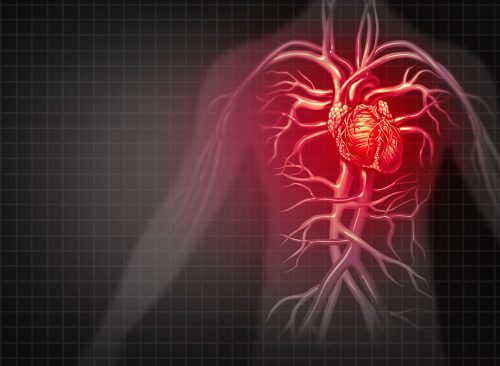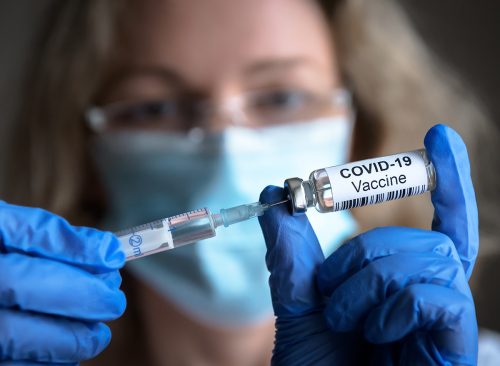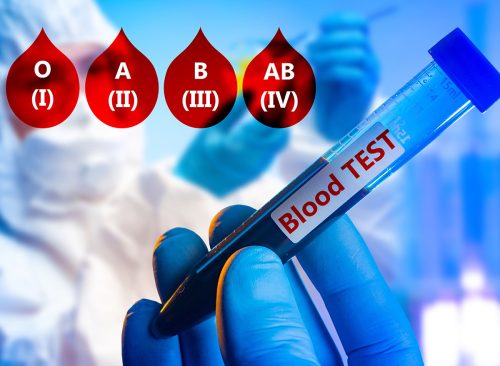7 Top COVID Myths Debunked by an Epidemiologist
Here are some of the most high-profile myths, busted by scientist.

Recently, Florida’s surgeon general, Dr. Joseph Ladapo, said he was “very uncomfortable recommending the new COVID-19 vaccine to anyone,” calling it “anti-human.” Ladapo’s remarks drew the attention of infectious disease expert Dr. Katelyn Jetelina, author of the newsletter Your Local Epidemiologist, who pointed out that Ladapo has a history of making comments about vaccines without evidence. She went on to debunk a number of claims by the state official.

“This fall, we do not have randomized controlled trial data for the updated COVID-19 vaccine,” says Jetelina. “We didn’t have it last fall either.” However, Moderna did clinical trials of the new vaccines on humans. “Moderna evaluated the human response to the updated vaccine in a lab, and the updated vaccines were found to significantly increase antibodies.”

“While randomized-controlled trials are the gold-standard evidence, it is not feasible to run them for everything (especially for a mutating virus),” said Jetelina. “Conducting a Phase III effectiveness trial takes time, effort, and resources. The virus has already mutated by the time it’s over, and then we need a new formula. So we have adapted COVID-19 to our flu model.”

The first version of the mRNA COVID vaccine did cause the FDA to issue a safety signal about the risk of myocarditis, inflammation of the heart muscle, in young people. However, “After last fall’s updated Covid-19 vaccine, only 2 myocarditis cases were verified out of ~650,000 doses among young males and females,” said Jetelina. “This is a much smaller rate than with the primary series. It’s about the same rate as background, which means it’s not a safety signal anymore. Although the risk/benefit ratio has changed over time, benefits continue to outweigh risks, even for adolescents.”

“The J&J vaccine was associated with a small increased risk of a rare kind of clotting disorder (TTS), not the mRNA vaccine,” said Jetelina. The J&J vaccine is no longer offered in the United States. Ladapo also seemed to conflate myocarditis with blood clotting. “Myocarditis does not mean an increased risk of heart damage from blood clots,” said Jetelina. “Myocarditis is not caused by blood clots. These are separate processes.”

“Observational studies show that vaccinated people are more likely to get infected after ~6 months compared to the unvaccinated. This is true,” said Jetelina. Yet, “there’s no immunological evidence to suggest the vaccines are actually harming immunity.” Potential reasons, which have yet to be studied: Vaccinated people may be more willing to get exposed to the virus, they may be more willing to test themselves (and discover the virus), or the timing of vaccination in terms of the latest COVID wave may play a part.

“He cites a lab study that found protein fragments of the vaccine spike,” said Jetelina. “This does not mean that the spike protein was circulating in these samples. The immune system processes proteins into fragments naturally, so finding a fragment doesn’t tell you that the spike protein is still intact or being produced. It’s like finding the letter ‘a’ in a document and saying that the document has the word ‘aardvark’ in it.”
RELATED: Surprising Signs You’ve Already Had COVID

“Framing public health as anti-human is an incredibly dangerous game to play,” Jetelina said about Ladapo’s comments. “Health policy decisions need to be grounded in an accumulation of evidence that provides a comprehensive picture of reality. He combines legitimate points with profoundly foolish ones, which muddles the picture, creates a sense of false equivalency, and makes it difficult for the general public to discern the truth.”














